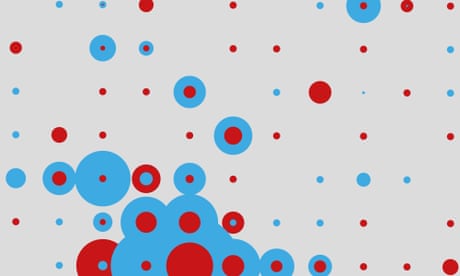Jennifer Rankin
 China has been accused by Brussels of running disinformation campaigns inside the European Union, as the bloc set out a plan to tackle a “huge wave” of false facts about the coronavirus pandemic.
China has been accused by Brussels of running disinformation campaigns inside the European Union, as the bloc set out a plan to tackle a “huge wave” of false facts about the coronavirus pandemic.
The European commission said Russia and China were running “targeted influence operations and disinformation campaigns in the EU, its neighbourhood, and globally”. While the charge against Russia has been levelled on many occasions, this is the first time the EU executive has publicly named China as a source of disinformation.
French politicians were furious when a Chinese embassy website claimed in mid-April, at the height of Europe’s pandemic, that care workers had abandoned their jobs leaving residents to die. The unnamed Chinese diplomat also claimed falsely that 80 French lawmakers had used a racist slur against the head of the World Health Organization, Tedros Adhanom Ghebreyesus.
Coronavirus: the week explained - sign up for our email newsletter
“I believe if we have evidence we should not shy away from naming and shaming,” Vĕra Jourová, a European commission vice-president, told reporters. “What we also witnessed is a surge in narratives undermining our democracies and in effect our response to the crisis, for example the claim there are secret US biological laboratories on former Soviet republics has been spread by both pro-Kremlin outlets, as well as Chinese officials and state media.”
“I strongly believe that a geopolitically strong EU can only materialise if we are assertive,” Jourová said, alluding to the aim of the European commission’s president, Ursula von der Leyen, for the body to have more clout on the world stage.
The more assertive stance marks a change in tone from a report in March which merely described Chinese media narratives, while focusing the spotlight on disinformation from Kremlin-backed sources. It comes after lawmakers in the European parliament accused the commission of watering down an earlier report on disinformation under pressure from China – charges EU officials strongly denied.
EU member states are grappling with how to deal with China on a range of fronts, from foreign policy and security, to the economy. The commission described China as a “systemic rival” in a 2019 report that was seen by many member states as marking a watershed in how the EU deals with an increasingly aggressive government in Beijing.
The EU commission also issued an implicit rebuke to Donald Trump, as it noted the harmful effects of his bizarre suggestions about injecting bleach to treat coronavirus. Without naming the US president, a commission document stated that such false claims can be “very harmful”, noting that Belgium’s Poison Control Centre has recorded an increase of 15% in the number of bleach-related incidents.
Jourová repeated her praise of Twitter for putting a factchecking tag on two of Trump’s recent tweets, while saying she would like to see a similar approach taken by social media companies on other false information. “Be it the president, be the diplomats, be it me…. when we [politicians] say something we have to be accountable and we should be able to stand that somebody goes and checks the facts.”
The commission has encouraged social media companies to sign a voluntary code of practice on disinformation, while threatening regulation if they fail to act. The latest report steps up demands on platforms to be more transparent in sharing data with researchers and intensify work with independent fact checkers. “I would not like the platforms themselves to be the arbiters of truth,” Jourová said.
The Chinese-owned video-sharing app TikTok has become the latest company to sign the code of practice, the commission said, joining the likes of Facebook, Google, Twitter and Mozilla.
News is under threat ...
… just when we need it the most. Millions of readers around the world are flocking to the Guardian in search of honest, authoritative, fact-based reporting that can help them understand the biggest challenge we have faced in our lifetime. But at this crucial moment, news organisations are facing an unprecedented existential challenge. As businesses everywhere feel the pinch, the advertising revenue that has long helped sustain our journalism continues to plummet. We need your help to fill the gap.
You’ve read 19 articles in the last six months. We believe every one of us deserves equal access to quality news and measured explanation. So, unlike many others, we made a different choice: to keep Guardian journalism open for all, regardless of where they live or what they can afford to pay. This would not be possible without financial contributions from our readers, who now support our work from 180 countries around the world.
We have upheld our editorial independence in the face of the disintegration of traditional media – with social platforms giving rise to misinformation, the seemingly unstoppable rise of big tech and independent voices being squashed by commercial ownership. The Guardian’s independence means we can set our own agenda and voice our own opinions. Our journalism is free from commercial and political bias – never influenced by billionaire owners or shareholders. This makes us different. It means we can challenge the powerful without fear and give a voice to those less heard.
Reader financial support has meant we can keep investigating, disentangling and interrogating. It has protected our independence, which has never been so critical. We are so grateful.
No comments:
Post a Comment